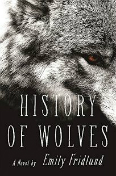
Here we are in mid-December with the winter holiday season fast approaching. But while most plants and animals bed down for a long winter’s nap, we humans are ramping up. In fact many of us continue on at an unrelenting pace rather than slowing down, turning inward and using this season to rest and restore ourselves (I’m guilty, too!). Surely this behavior contributes yet another layer of strife to a season that is typically full of stressors. So, whether we enjoy and welcome this time of year or not, most of us will eventually deal with some tensions, anxiety and/or depression.
There are many constructive ways to manage and reduce stress. One of my favorites is yoga. Simply defined, yoga is an ancient Hindu spiritual practice that combines physical postures, breathing techniques and meditation as a means to spiritual attainment and physical and emotional good health. It may not be the right option for everyone, but many people, me included, appreciate the positive benefits of yoga, particularly for managing life’s difficulties and promoting a sense of ease and well-being. Continue reading “De-Stress With Yoga”
 Here is a new DVD list highlighting various titles recently added to the library’s collection.
Here is a new DVD list highlighting various titles recently added to the library’s collection.
 “Step”
“Step”
Website / Reviews
Shown at the True/False Film Fest in 2017, this film is the true-life story of a girls’ high school step team against the background of the heart of Baltimore. These young women learn to laugh, love and thrive even when the world seems to work against them. Empowered by their teachers, teammates, counselors, coaches and families, they chase their dreams to win a step championship and to be accepted into college. Continue reading “New DVD List: Step, Kedi, Whose Streets? and More”
Every once in a while I learn about a new technological breakthrough, and I’m struck with a sense that I’m living in a science fiction novel. The stuff of dreams when I was a kid — virtual reality, robots, artificial intelligence — is now becoming the domain of nonfiction and the nightly news. But as wondrous as these advancements are, they can also bring with them a feeling of anxiety. These things will certainly alter our society and daily lives, but will it always be for the better? There are a growing number of books that look at where our technology is heading and provide thought-provoking answers to this question. Here are a few of them.
 If you want to start with a good primer on the future of technology, there is “Soonish: Ten Emerging Technologies That’ll Improve and/or Ruin Everything” by Kelly and Zach Weinersmith. As its name suggests, this book takes a somewhat humorous approach to examining the potential benefits, challenges and pitfalls of technologies like cheap access to space, fusion power and programmable matter. Continue reading “Literary Links: Our Technological Future”
If you want to start with a good primer on the future of technology, there is “Soonish: Ten Emerging Technologies That’ll Improve and/or Ruin Everything” by Kelly and Zach Weinersmith. As its name suggests, this book takes a somewhat humorous approach to examining the potential benefits, challenges and pitfalls of technologies like cheap access to space, fusion power and programmable matter. Continue reading “Literary Links: Our Technological Future”
“And so we rode out that Christmas morning from the ruins in which the Tipmen had discovered ‘The History of Mankind in Space,’ which still resided in my back-satchel, vagrant memory of a half-forgotten past.”
-Robert Charles Wilson, “Julian: A Christmas Story”
Merry Christmas from the theocratic neo-Victorian 22nd century created by Robert Charles Wilson! Climate change and the end of peak oil have caused a technological reversion. The social order is structured by a hierarchy with feudal indenture, property-based representation in the senate and a hereditary line of succession to the presidency. The titular character, Julian Comstock, is the nephew of the sitting president sent to a remote district by his mother for his safety. That safety is threatened two days before Christmas when reservists arrive to impose a draft for the war with the Dutch in Labrador. Maps and geopolitical relationships have changed significantly — our flag has 60 stars and Julian’s father was a hero of a war against Brazil. Julian’s father was also hanged for a dubious charge of treason, and the president now sees Julian as a threat. Conscription into the war would be a convenient way for the president to eliminate his teenage nephew. Continue reading “Know Your Dystopias: Christmas Edition?”
remote district by his mother for his safety. That safety is threatened two days before Christmas when reservists arrive to impose a draft for the war with the Dutch in Labrador. Maps and geopolitical relationships have changed significantly — our flag has 60 stars and Julian’s father was a hero of a war against Brazil. Julian’s father was also hanged for a dubious charge of treason, and the president now sees Julian as a threat. Conscription into the war would be a convenient way for the president to eliminate his teenage nephew. Continue reading “Know Your Dystopias: Christmas Edition?”
 Throughout the year, I’ve shared the LibraryReads Top 10 favorite books that librarians love each month. From those lists, a vote is held to determine the top 10 of the entire year. Without further ado, here is the Favorite of Favorites 2017:
Throughout the year, I’ve shared the LibraryReads Top 10 favorite books that librarians love each month. From those lists, a vote is held to determine the top 10 of the entire year. Without further ado, here is the Favorite of Favorites 2017:
 “Little Fires Everywhere”
“Little Fires Everywhere”
by Celeste Ng
“’Little Fires Everywhere’ delves into family relationships and what parenthood, either biological or by adoption, means. We follow the members of two families living in the idyllic, perfectly-planned suburb of Shaker Heights, Ohio: Mia and Pearl, a mother and daughter living a less traditional lifestyle, moving from town to town every few months, and the Richardsons, the perfect nuclear family in the perfect suburb … until Izzy Richardson burns her family home down. Ng’s superpower is her ability to pull you into her books from the very first sentence!”
~Emma DeLooze-Klein, Kirkwood Public Library, Kirkwood, MO
And here are the rest:
Continue reading “LibraryReads: Favorite of Favorites 2017”
Here is a quick look at the most noteworthy nonfiction titles being released in December. Visit our catalog for a more extensive list.
TOP PICKS
 “No Time to Spare: Thinking About What Matters” by Ursula K. Le Guin
“No Time to Spare: Thinking About What Matters” by Ursula K. Le Guin
A collection of essays from the legendary author’s blog that express her thoughts on aging, belief, the state of literature and the state of the nation. Continue reading “Nonfiction Roundup: December 2017”
Editor’s note: This review was submitted by a library patron during the 2017 Adult Summer Reading program. We will continue to periodically share some of these reviews throughout the year.

What a wonderfully written book! I’ll admit that I didn’t really know what I was getting into when I first cracked “History of Wolves,” and the meandering pace and plot kept me unsure through the first several chapters. But as this tale revealed itself to be an introspective look at the thoughts and actions of youth, I was left completely enthralled. Part of what impresses me most about this piece is how much I connect with the young protagonist despite how little I actually have in common with her. Linda is an observer, she’s self-critical, she’s trapped, she seeks no assistance or sympathy despite her age, she’s fascinating. As I reached the midpoint in this book I gleefully wrapped myself in the subtle sense of dread that Fridlund imbues these pages with.
Three words that describe this book: Atmospheric, fresh, enveloping
You might want to pick this book up if: If you want to spend several hours inside the head of an adolescent girl grappling with an unusual reality.
-Xander
Here are the authors making their debuts this November. It’s a pretty sparse crowd as we head toward the end of the year, but there are still some fantastic books waiting to be discovered. I’m especially excited about “The City of Brass” by S. A. Chakraborty.
 “The City of Brass” by S. A. Chakraborty
“The City of Brass” by S. A. Chakraborty
Con artist Nahri uses her wits and sleight of hand to survive the streets of 18th century Cairo. She gets by, by performing palm readings and healings, but she doesn’t believe in magic — that is, until she accidentally summons a mysterious djinn. Together they journey to Daevabad, the legendary city of brass, where Nahri is drawn into a world of magic and politics that she doesn’t understand and learns secrets about her past that change everything.
“The Library at the Edge of the World” by Felicity Hayes-McCoy
Set in the villages of Ireland’s West Coast, librarian Hanna Casey returns to the rural town she grew up in to rebuild her life after discovering her husband in bed with another woman. Even as she works to become independent, she finds herself at the center of gossip and her library is threatened with closure. So Hanna begins a battle to save the library and her community, along the way forging relationships with the neighbors she had worked so hard to keep at a distance.
Continue reading “Debut Author Spotlight: November”
What does life mean when you are living on a dead world? How do you remain human when most of what surrounds you is artificial? Questions of authenticity and what it is to be human haunt Philip K. Dick’s dead and sparsely populated vision of Earth in “Do Androids Dream of Electric Sheep?” 
While best known as the source material for the classic movie “Blade Runner” and the recent sequel, the novel is its own unique story. It describes a post-apocalyptic Earth where a radioactive atmosphere caused mass emigrations to colonies on other planets. Most who live on Earth are not there by choice — they do not have the means, nor do they pass genetic or intelligence thresholds that would permit them to live “off-world.” Status in this world is exemplified in the quest of the protagonist, Rick Deckard, to own a real, live animal. Most animals are extinct and rare specimens are coveted. When we first meet Deckard he is making do with a robotic sheep he passes off to his neighbors as real. Continue reading “Know Your Dystopias: Do Androids Dream of Electric Sheep?”

Sometimes it’s easy to be grateful because some things simply demand gratitude, such as avoiding a collision or winning a lottery — or even just finding $20 in an old coat pocket. But it can also be hard to be grateful. Every day. Day after day. Life gets busy and overwhelming partly because of the big things swirling around us, but also because of the small and petty things that demand our attention. It can be hard to refocus and reflect on our blessings. That is why November, the month of Thanksgiving, has become my time to make a concerted effort by focusing on a different gratitude each day. And, as with most things in my life, that includes a healthy dose of books. Continue reading “A Month of Gratitude”








